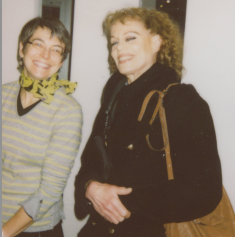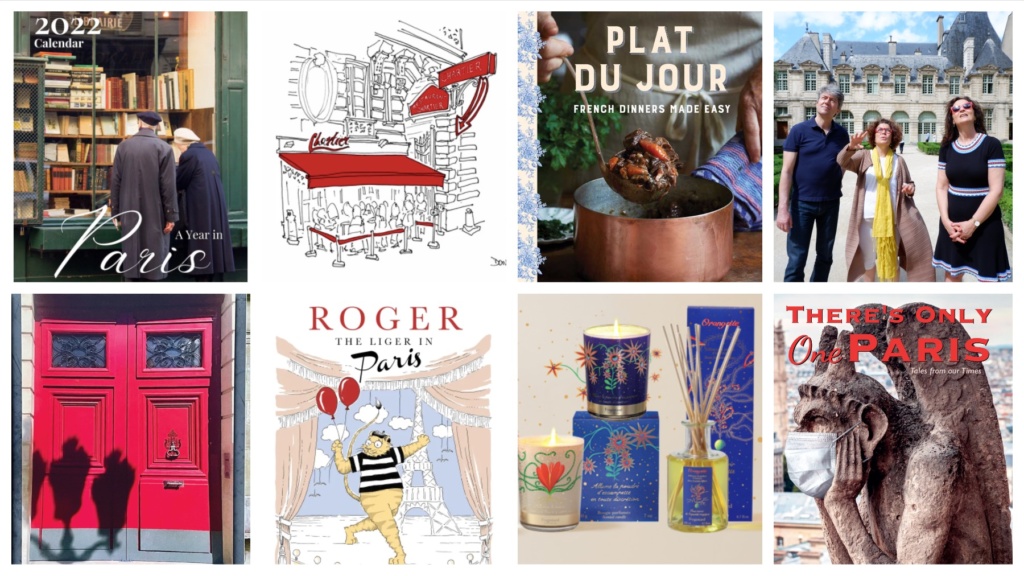
No anglophone foreigner can survive their first months or years in France without the help of the trusted
FUSAC magazine with its great listings of jobs, apartments, events, and over the years the magazine has expanded to include fun columns on French-English expressions, a book corner and more. It was through the latter and the release of my book that I became directly connected with Lisa Vanden Bos. When she contacted me about her own book project with Shari Leslie Segall and Judit Halász,
90+ Ways You Know You’re Becoming French, I was eager to learn more, read on!
Tell us more about what inspired you to write the book?
Lisa Vanden Bos: Shari and I have been living in France (both from the USA originally) for a combined total of more than 50 years. She is a part-time writer who writes tongue-in-cheek articles on life in France and some of its mysteries for FUSAC.fr. The piece she did with 20 ways you know you are becoming French got tons of comments and people added their own ways. At which point she offhandedly suggested we make it into a book. FUSAC took her up on it and our publishing experience combined with her writing and both our French experiences were put to work. We found an illustrator who was willing to come along for this ride and we all got down to work which was really a lot of fun.

Did you have some specific criteria when coming up with the “ways”?
LVB: We mostly just took a look at our everyday lives and noted things as we went along. Once you start keeping an eye open the list grows pretty rapidly. We wanted to keep to habits and customs that are exclusively French. For example I suggested that having a cabinet full of glasses that were previously mustard containers was becoming French, but Shari disagreed remembering jelly jar glasses from her childhood.
Why 90+?
LVB: From the original 20, the list got longer and longer quite rapidly, so we added more and more pages to the book, but then there are some paginations that are more convenient to print than others so we stopped at 95. And thought using 90+ in the title was more fun than just saying 95.
When your entourage heard about the project, did they chime in ideas?
LVB: Oh goodness, everyone chimed in and continue to chime in. The French in my circle got a kick out of being observed and of observing some of their own characteristics and made plenty of suggestions. Most of them thought we were pretty right-on. And the book sells in a few French bookshops too.
Were there any other surprises that came up during the writing and preparation process?
The best surprise was the ease with which this all came together. We were working with an artist we had never actually met who lives in Hungary, so we did everything by correspondance. Judit was easy to work with, redid drawings when we made suggestions and made every deadline too. We finally met her when she came to Paris after the book came out. The synergy of Shari’s talents with mine also works better than could have been planned.
Do you think someone needs to live in France for a certain number of years before s/he starts “becoming French” or can it start from day 1?
LVB: Sure it starts with day 1. Learning to say “bonjour” is a first step. But it is true that you can only assimilate a culture by living with it for a long time. Even if you don’t have a language difference – imagine a girl from Philadelphia moving to Manchester- there are huge differences to be assimilated, but with an open mind and imersion those differences become just part of every day life – I use my fork in my left hand and my knife in the right now and don’t even realize I’m doing it until back in the US someone makes a comment – and that when you realize you’ve “become French” and as number 95 says “you really, truly, deeply, unquestionably do not know where “home” is anymore. It may not be in France, but it sure is no longer where you came from.”
About the Authors:
 Shari Leslie Segall, in Paris since 1985 and author of France-themed books and articles, teaches English and cross-cultural communication at the prestigious Institut des Etudes Politiques (Sciences Po) and at the French Military Academy. She is the founding director of Foreign Affairs, which provides linguistic and cross-cultural training and creates English-language documents for executives.
Shari Leslie Segall, in Paris since 1985 and author of France-themed books and articles, teaches English and cross-cultural communication at the prestigious Institut des Etudes Politiques (Sciences Po) and at the French Military Academy. She is the founding director of Foreign Affairs, which provides linguistic and cross-cultural training and creates English-language documents for executives.
Lisa Vanden Bos, originally from the U.S.A. and in Paris since 1989, is co-owner of FUSAC, the magazine and website for English speakers in Paris. She has created two volumes of the Speak Easy Book of French and English idiomatic expressions. Lisa never tires of exploring Paris, France and French language and culture.
Judit Halász, the illustrator, is a Hungarian designer who loves France. Having studied graphic and packaging design, fashion design and furniture design at the University of West Hungary and at Seinäjoki
 No anglophone foreigner can survive their first months or years in France without the help of the trusted FUSAC magazine with its great listings of jobs, apartments, events, and over the years the magazine has expanded to include fun columns on French-English expressions, a book corner and more. It was through the latter and the release of my book that I became directly connected with Lisa Vanden Bos. When she contacted me about her own book project with Shari Leslie Segall and Judit Halász, 90+ Ways You Know You’re Becoming French, I was eager to learn more, read on!
No anglophone foreigner can survive their first months or years in France without the help of the trusted FUSAC magazine with its great listings of jobs, apartments, events, and over the years the magazine has expanded to include fun columns on French-English expressions, a book corner and more. It was through the latter and the release of my book that I became directly connected with Lisa Vanden Bos. When she contacted me about her own book project with Shari Leslie Segall and Judit Halász, 90+ Ways You Know You’re Becoming French, I was eager to learn more, read on! Shari Leslie Segall, in Paris since 1985 and author of France-themed books and articles, teaches English and cross-cultural communication at the prestigious Institut des Etudes Politiques (Sciences Po) and at the French Military Academy. She is the founding director of Foreign Affairs, which provides linguistic and cross-cultural training and creates English-language documents for executives.
Shari Leslie Segall, in Paris since 1985 and author of France-themed books and articles, teaches English and cross-cultural communication at the prestigious Institut des Etudes Politiques (Sciences Po) and at the French Military Academy. She is the founding director of Foreign Affairs, which provides linguistic and cross-cultural training and creates English-language documents for executives.






